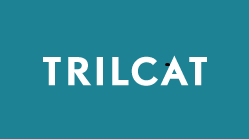Research Groups and Units
ALLENCAM | COLT | GEDIT | GELIT | GLIF | GRAC | GR@EL | GRAMMAR & COGNITION LAB | GREPG | INFOLEX | TRADILEX | IULATERM | TRILCAT| URLING |
RESEARCH GROUPS AND UNITS IN THE DEPARTMENT
 |
ALLENCAM (UR-LING): Adquisició de Llengües des de la Catalunya Multilingüe |
|
ALLENCAM (Language Acquisition from Multilingual Catalonia) is the research group on language acquisition based at UPF since 2004, when it was officially recognized by the Catalan Generalitat (SGR 140). Since then, a total of 23 members have joined the group, both nationally (Universitat de les Illes Balears y Universitat Autònoma) and internationally. Our research interests lie in the field of language acquisition processes and outcomes in different learning situations: both in formal instruction and naturalistic contexts, during study/residence abroad, and in bilingual, trilingual or multilingual settings. We focus on the linguistic phenomena in language development: syntax, morphology, phonetics, discourse and pragmatics, but also on the individual and emotional factors which affect the rate and route of acquisition, and on intercultural issues. Our main languages of study are English, Catalan, Spanish, French and Russian. ALLENCAM belongs to the Research Unit in Linguistics (UR-LING) at UPF. KEYWORDS: language acquisition (L1, L2, L3, FL); bilingualism; language contact; applied linguistics; CLIL; translanguaging. |
|
|
|
COLT (UR-LING): Computational Linguistics and Linguistics Theory |
|
The Computational Linguistics and Linguistic Theory (COLT) group combines traditional theoretical linguistic methods with quantitative and computational tools to study how language works. Its focus is on computational modeling, using techniques from Artificial Intelligence (in particular data-driven methods from Machine Learning, such as Neural Networks and Deep Learning). A specific interest of the group is semantics, or the study of meaning, and we are exploring it with methods that can induce semantic representations directly from examples of how people use language. COLT belongs to the Research Unit in Linguistics (UR-LING). KEYWORDS: computational linguistics; theoretical linguistics; natural language processing; computational semantics; language and vision; semantic theory; pragmatics; deep learning; neural networks; artificial intelligence; cognitive science. RESEARCH TOPICS: reference; word meaning; meaning modulation; polysemy; object naming; event semantics; memory in neural networks; language emergence; communication between artificial agents.
|
|
GEDIT |
|
|
The Discourse and Translation Studies Group (GEDIT) is the confluence of two previous consolidated research groups: the Discourse Studies Group (GED) and the Discourse and Translation Studies Centre (CEDIT), with a history of activities and common research interests. Discourse studies are a shared approach to analyze diverse communicative situations, often marked by multilingualism and multimodality. The research lines of the GEDIT are (i) the pragmatics of discourse (contrastive linguistics, corpus and enunciative linguistics, and applied to social interpretation / mediation); (ii) sociolinguistic studies (multilingualism and diversity); (iii) critical discourse analysis (multimodality, discourse and cultural identities, discourse and gender, discourse and social transformation); (iv) translation studies of multimodal genres (audiovisual translation); (v) discursive and translation approaches to specialized legal-economic translation (vi) stylistics applied to literary translation. GEDIT belongs to the SGR group TRADILEX. KEYWORDS: discourse; multimodality; critical discourse analysis; pragmatics; sociolinguistics; multilingualism; contrastive studies; specialized translation; audiovisual translation; stylistics applied to translation; social mediation. |
|
|
The members of GLiF (Formal Linguistics Group) work on the formal description of the architecture of human language and the interactions between different modules - phonology, morphology, syntax, semantics and pragmatics - based on data from a number of languages, primarily from the Romance and Germanic families, and from signed languages. The group employs a variety of methods, including field work, experiment-based and elicited data collection, and both synchronic and diachronic corpus data analysis. GLiF belongs to the Research Unit in Linguistics (UR-LING). KEYWORDS: formal linguistics; morphosyntax; semantics; pragmatics; syntax/semantics/pragmatics interface; language variation and change; sign language grammars. RESEARCH TOPICS: argument realization, formal discourse analysis of sign languages, information structure, interaction of lexical and compositional semantics, modification, modality differences between sign and spoken languages, non-truth-conditional meaning, status of non-finite forms of the verb in the grammar. |
|
GraC |
|
|
GraC studies links between language and cognition by studying language patterns in cognitive disorders. Language pathologies have long informed linguistic theory, with a focus on post-stroke aphasia and specific language impairment. GraC seeks to expand the range of clinical data considered in this respect, including deviant language patterns across the autism spectrum, in schizophrenia, and in dementias. We aim for work in which influence between language sciences and the clinic (and special schools) is bi-directional, and results have translational significance for patient benefit. We use a range of methods, from behavioural linguistic analysis and experiments, to neurolinguistic methods (MRI), eye-tracking, and EEG. GraC is keen to embed its empirical and experimental work in theoretical linguistic investigations and a philosophical framework known as 'un-Cartesian' linguistics. GraC belongs to the Research Unit in Linguistics (UR-LING). KEYWORDS: clinical linguistics; cognitive disorders; linguistic variation; language and thought; autism; schizophrenia; dementia. |
|
|
GR@EL: Grup de Recerca en Aprenentatge i Ensenyament de Llengües |
|
|
We investigate various aspects of language use, learning, and teaching in multiple languages (CA, ES, FR, IN), encompassing both first languages (L1), second languages (L2), additional languages, and heritage languages. Our research spans various educational levels, including secondary, university, and adult education, across formal and informal contexts. We explore a wide range of topics, including academic genres, teaching materials, multilingual competence, the impact of information and communication technology (ICT), such as social networks, translators, and AI, as well as interactions between learners and mentoring, and the learner self-regulation. Our research approach is multidisciplinary, combining ethnographic methods (interviews, observations, case studies), linguistic analysis (corpus linguistics, discourse analysis), and educational methodologies (classroom observations, intervention, and analysis of didactic sequences). Through our work, we aim to address pressing issues in education, such as the influence of the internet in schools, the integration of migrant populations, the management of linguistic diversity, and improving access to academic writing and the scientific community. Since 2004, we have led 12 research and development (R&D) projects, supervised 57 theses, published over 350 scientific works (including articles and book chapters), and presented our findings at numerous conferences. We are a recognized and consistently funded research group since 2005. KEYWORDS: language teaching, language learning, literacy, plurilingualism, new literacies, reading, writing, discursive genre, discourse analysis, text linguistics, student autonomy, self-regulation, multilingualism, integrated language treatment, ICT, e-learning, online reading, ELA (virtual learning environment), PLE (personal learning environment). |
|
 |
|
|
The main aim of the GrEPG (Prosodic and Gestural Studies group) is to understand the role of prosody and gesture in human communication, in language understanding and language processing. Important areas of interest include the interface between audiovisual prosody and pragmatics, the cognitive processes behind the processing of audiovisual prosody, as well as the acquisition of audiovisual prosody in L1 and L2. The primary languages under investigation are Catalan, Spanish, Occitan, English, and Sardinian. GrEP belongs to the Research Unit in Linguistics (UR-LING). KEYWORDS: prosody; gesture; cognition; semantics and pragmatics; acquisition of prosody and gesture. RESEARCH TOPICS: audiovisual prosody; prosody, gesture and pragmatics; acquisition of prosody and gesture; embodied cognition and language learning; acquisition of L2 pronunciation. |
|
 |
|
|
The name INFOLEX (Information and Informatization, Lexis and Lexicography) indicates the two principal concerns of the group: Info from information and informatization together with lex from lexis and lexicography. The group's interest is the study of lexis as the basis for dictionaries, both monolingual and bilingual, as well as the information that both lexis and dictionaries may contain. All its members have undertaken research work on vocabulary and lexicon from different points of view, mainly descriptive and applied, in the search for precise and detailed descriptions of semantic, morphologic and syntactic phenomena and their treatment in dictionaries. This ultimate aim of this research is bring about lexicographic improvements (separation of meanings, treatment of polysemy, verified equivalences, etc.). INFOLEX belongs to the Institut de Lingüística Aplicada (IULA). INFOLEX belongs to the SGR group TRADILEX. KEYWORDS: xicography; lexicology (grammar and teaching); morphology; neology; media accessibility. |
|
 |
|
|
The IULATERM research group (Lexicon and technology) works in the following lines of research: terminology, neology, specialized lexicography, specialized discourse, lexical variation and change, lexicology (morphology, semantics and lexicon syntax, phraseology), language technologies, computational linguistics, corpus linguistics, and management of linguistic change and diversity.All research topics are approached from a threefold perspective: theoretical, descriptive, and applied.The line of terminology is the most internationally recognized, because within the group the Communicative Theory of Terminology (Cabré 1999) has been developed. IULATERM is part of the Institute of Applied Linguistics (IULA), a specific research center of UPF. KEYWORDS: lexicon; terminology; neology; computational linguistics; linguistic engineering; corpus linguistics; linguistic variation; language change; standardology; language resources; processing and extraction tools. |
|
TRADILEX |
TRADILEX |
|
TraDiLex, recognized by the Generalitat de Catalunya (2021 SGR 00952), has been formed by researchers from two groups, GEDIT and InfoLex, who share an interest in lexical analysis from various perspectives, both theoretical and applied, an empirical methodology and a multilingual perspective. The TraDiLex group carries out research in the field of translation studies and applied linguistics, specifically lexicography and discourse analysis. Its scientific activity develops different lines of research in which the lexicon is the main object of study, with an interdisciplinary approach – which includes morphology, lexicology, semantics, and pragmatics – and a contrastive approach – which considers the combination of different languages. From a methodological point of view, the group’s research is characterized by the study of empirical data from corpora in which the lexicon is analyzed in context from various applied perspectives, ranging from the description of the linguistic information included in lexicographical works, the study of neology for dictionary development, the analysis of the mechanisms of translation of linguistic variation, to media accessibility, multilingualism in audiovisual productions, or discourse on migration. KEYWORDS: translation and discourse; audiovisual translation; translation teaching and learning; media accessibility; contrastive studies; discourse analysis; multimodality; multilingualism; lexicography; lexicology (grammar and teaching); morphology; neology. |
|
 |
TRILCAT: Grup de recerca en traducció, recepció i literatura |
|
TRILCAT (group for the study of translation, reception and Catalan literature) currently comprises researchers from Pompeu Fabra University, the Autonomous University of Barcelona and the Universitat Jaume I Universitat Ramon Llull. Its aim is to deepen the understanding of literature and culture from the nineteenth century to the present, from two complementary areas: the study of contacts between literature and analysis of the role of writers and translators as cultural mediators. KEYWORDS: translation and reception in contemporary catalan culture; comparative literature (spanish-catalan). |
|
GraC |
|
|
GraC studies links between language and cognition by studying language patterns in cognitive disorders. Language pathologies have long informed linguistic theory, with a focus on post-stroke aphasia and specific language impairment. GraC seeks to expand the range of clinical data considered in this respect, including deviant language patterns across the autism spectrum, in schizophrenia, and in dementias. We aim for work in which influence between language sciences and the clinic (and special schools) is bi-directional, and results have translational significance for patient benefit. We use a range of methods, from behavioural linguistic analysis and experiments, to neurolinguistic methods (MRI), eye-tracking, and EEG. GraC is keen to embed its empirical and experimental work in theoretical linguistic investigations and a philosophical framework known as 'un-Cartesian' linguistics. GraC belongs to the Research Unit in Linguistics (UR-LING). KEYWORDS: clinical linguistics; cognitive disorders; linguistic variation; language and thought; autism; schizophrenia; dementia. |
|
UR-Ling |
|
|
UR-Ling aims to foster communication and cross-fertilization among the groups that compose the research unit (GLIF, GrEP, COLT, GraC and ALLENCAM) by organizing joint activities and events. |
|
